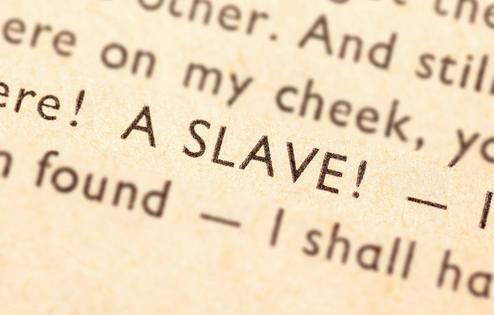Anti-DEI guidance from Trump administration misinterprets the law and guts educators’ free speech rights
Published in Political News
The Trump administration’s attacks on diversity, equity and inclusion have continued in the form of a “Dear Colleague” letter from the Department of Education to educational institutions – from preschools through colleges and universities.
This letter demands that schools abandon what the Trump administration refers to as “DEI programs” and threatens to withhold federal funding if schools don’t comply.
According to President Donald Trump, these so-called DEI programs – found in the government, corporate and educational sectors and intended to reduce discrimination and promote the equitable treatment of people – are a form of antiwhite racism that hurt national unity and violate antidiscrimination laws.
Although the letter does not have the force of law, it nonetheless signals how the Trump administration plans to aggressively take legal and financial action against educational institutions that refuse to comply, starting on Feb. 28.
As a result, the Trump administration’s threat to remove federal funding, which both public and private educational institutions rely heavily on, is likely to coerce compliance, at least to some degree.
As the letter explains, “The Department will vigorously enforce the law on equal terms as to all preschool, elementary, secondary, and postsecondary educational institutions, as well as state educational agencies, that receive financial assistance.”
Thus, these directives have the potential to fundamentally change education in America.
As professors of legal studies, we’ve taken a close look at the “Dear Colleague” letter. Here’s how the letter infringes on free speech, misunderstands the law and undermines education.
The First Amendment to the Constitution protects the right of the people to express viewpoints without fear of punishment by the government.
The Trump administration’s attacks on DEI are part of a broader assault on freedom of speech in which Trump targets media, businesses and everyday Americans the president disagrees with.
By directing schools, colleges and universities to stop DEI policies, the “Dear Colleague” letter clearly restricts free speech rights. That’s the case because creating and pursuing DEI policies is a type of freedom of expression. Banning DEI practices is a form of viewpoint discrimination, which is prohibited by Supreme Court precedent that covers the speech of educational institutions as well as their faculty and staff.
For instance, the letter aims to prevent educational institutions from pursuing missions and policies that promote the concepts of DEI. Such missions are common in higher education and can be found in universities from the conservative Brigham Young University to the liberal University of Vermont.
Frequently, these missions are pursued by requiring students to take courses that encourage them to learn about perspectives or cultures that are different from their own.
While the letter is not clear about which courses it would consider a problem, targeting any topics serves to suppress the free speech rights and academic freedom of faculty, including their freedom to design and teach courses.
This vagueness may be part of the threat. After all, if teachers aren’t sure what they might get punished for, they may be extra cautious and censor themselves.
Aside from being vague, the letter also seems to willfully misrepresent the 2022 Supreme Court decision ending race-based affirmative action in higher education, Students for Fair Admissions v. Harvard College.
In that case, Chief Justice John Roberts wrote a narrow majority opinion declaring simply that university admissions policies could not aim to create incoming classes with particular racial balances.
Roberts’ opinion was silent on any other type of educational policy. It also states explicitly that “nothing in this opinion should be construed as prohibiting universities from considering an applicant’s discussion of how race affected his or her life, be it through discrimination, inspiration, or otherwise,” so long as they are evaluated for admission as an individual.
And yet, the “Dear Colleague” letter takes this decision and runs with it in multiple different directions. First, it falsely claims that the decision prohibits schools from eliminating standardized testing in their admissions process, something many schools have chosen to do in recent years.
Second, the letter falsely states, in contradiction with the ruling’s own text, that the decision applies much more broadly than the context of admissions, to “hiring, promotion, compensation, financial aid, scholarships, prizes, administrative support, discipline, housing, graduation ceremonies, and all other aspects of student, academic, and campus life.”
Thus, according to the letter, any program that targeted a particular group for differential treatment based on their race would come under government scrutiny, including programs designed to assist students of color, to house students according to affinity groups, and to diversify university faculty.
There is simply no reading of the Students for Fair Admissions decision that suggests such an encroachment on the inner workings of educational institutions. Roberts’ majority opinion says only that students should be evaluated as individuals when applying to colleges and universities.
In sum, the letter places educators, especially those of us who teach about American law and government, in an impossible position.
It states that “educational institutions have toxically indoctrinated students with the false premise that the United States is built upon ‘systemic and structural racism,’” suggesting that the U.S. does not have such a history.
But, for example, in order to teach why affirmative action is now unconstitutional, we would have to explain the concept of strict scrutiny to our students. Strict scrutiny is when a court examines a law very carefully to make sure that it does not promote an unconstitutional racial or religious classification. It is a kind of review that is used routinely and appropriately by courts, and was used to strike down affirmative action in Students for Fair Admissions.
That level of judicial review exists because, in the words of Roberts in Students for Fair Admissions, “for almost a century after the Civil War, state-mandated segregation was in many parts of the Nation a regrettable norm. This Court played its own role in that ignoble history, allowing in Plessy v. Ferguson the separate but equal regime that would come to deface much of America.”
In other words, the Supreme Court created strict scrutiny as a judicial antidote to the systemic racism that it had helped perpetuate.
Even more basically, it is impossible to teach constitutional law without acknowledging the Three-Fifths Compromise or the Fugitive Slave Clause, both of which embedded the property rights of slaveowners into the founding documents of this country, denying enslaved people full citizenship and its rights.
To not teach students about such topics is, we believe, to fail in our role as educators. To forbid teaching it is an attack on the core mission of educational institutions in a democracy. And even more, this letter aims to prevent teachers from critiquing what the letter itself says and from explaining its own context and history.
This article is republished from The Conversation, a nonprofit, independent news organization bringing you facts and trustworthy analysis to help you make sense of our complex world. It was written by: Paul M. Collins Jr., UMass Amherst and Rebecca Hamlin, University of Massachusetts
Read more:
Trump’s claims of vast presidential powers run up against Article 2 of the Constitution and exceed previous presidents’ power grabs
Trump’s moves to strip employment protections from federal workers threaten to make government function worse – not better
Cutting Medicaid and federal programs are among 4 key Trump administration policy changes that could make life harder for disabled people
The authors do not work for, consult, own shares in or receive funding from any company or organization that would benefit from this article, and have disclosed no relevant affiliations beyond their academic appointment.


































































Comments